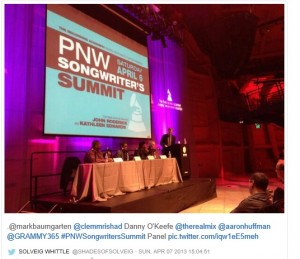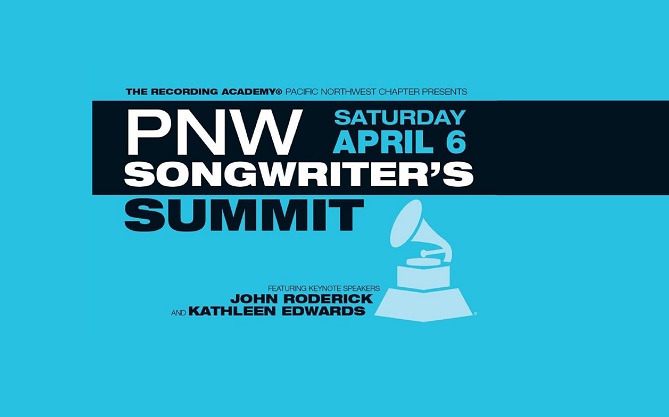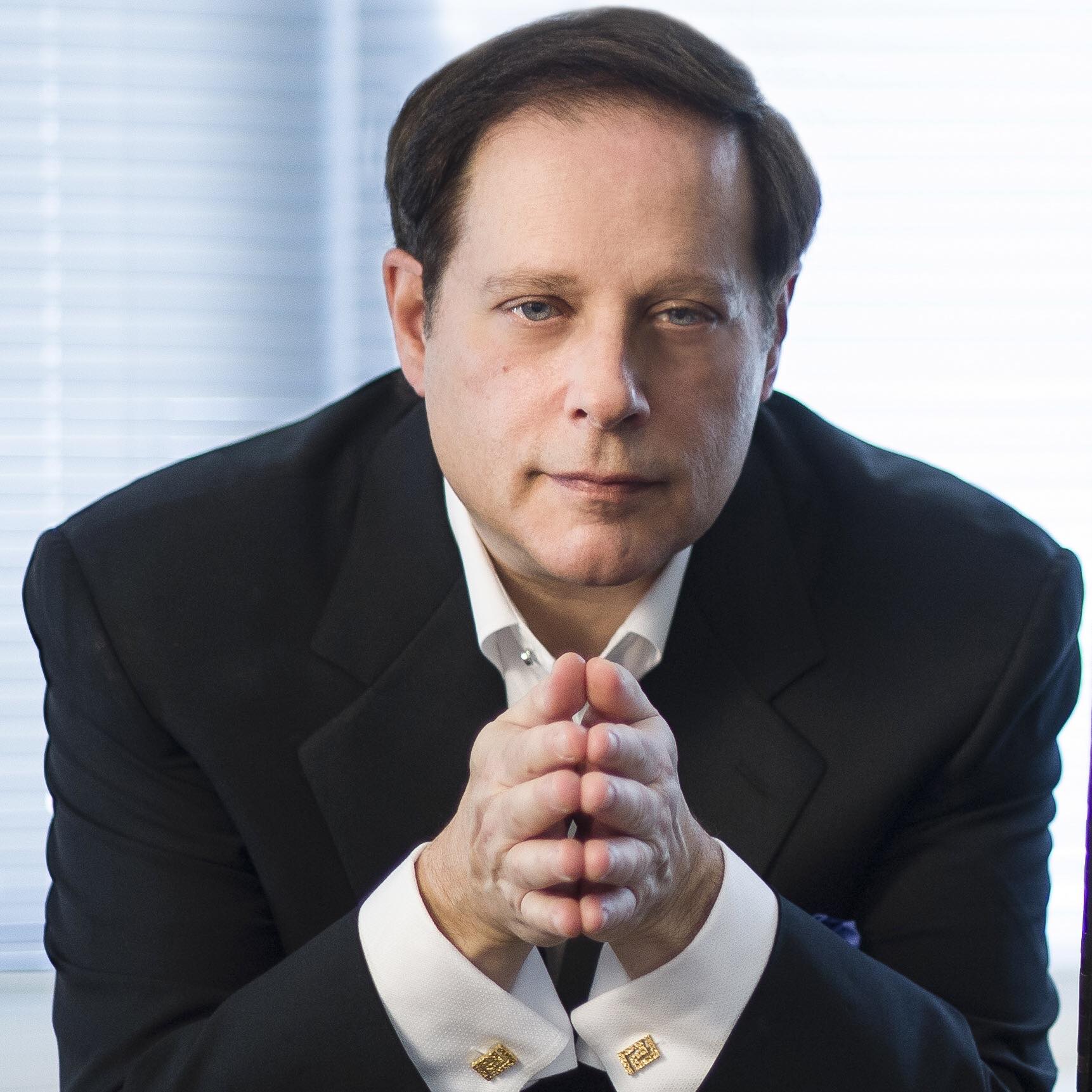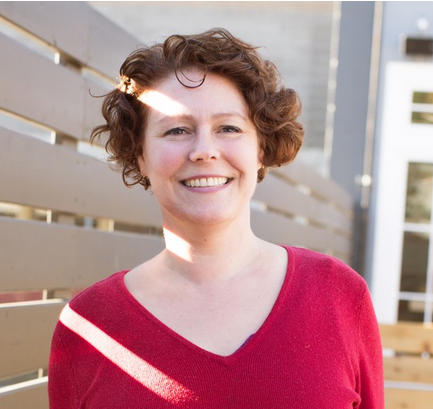The issues faced by DIY (Do It Yourself), DTF (Direct-To-Fan), AKA indie musicians cut across both musical genre and race. Many of the sources of information for musicians today seem to come in silos delineated by genre: hip hop artists read hip hop books and blogs, and get advice primarily from hip hop industry people; jazz, rock, metal, pop and folk artists do the same. Yet we all face many of the same issues, and these sources of information repeat much of the same advice to those who want to make a career in music. When we all share our experiences, though, we see how universal it is to be a musician, no matter what type of music we make, what cultural background we are from, or what age we are.
I was reminded of this when I attended the Pacific Northwest Recording Academy’s (Grammy organization) inaugural Songwriter’s Summit this weekend at Seattle’s EMP (Experience Music Project). There were people of every age and color at the Summit, but the concerns and frustrations voiced by the attendees were nearly identical:
- How do I make a living in this crazy business that I love, but which changes under my feet every year, every week, every day?
- Where is the real money to be made in writing and recording music?
- How do I write a hit song? Then, how do I write another hit song?
- How do I rise above the noise in the music industry and get my music heard?
- How do I register and copyright my music so I can get paid?
- How does the byzantine world of music licensing work?
- Is the music business still all about relationships and who you know, or is the internet the great equalizer?
- What is a mechanical license, what does a publisher do, who is SoundExchange and why should I care?
- (and why does Rhapsody hold 30% of their licensing revenue from streaming plays because they cannot figure out who to pay? This amazing statistic courtesy of Jon Maples, Vice President of Rhapsody Product Management)
The opening session of the Summit was a great example of this universality. The panelists were:
- Clemm Rishad, a young black songwriter signed to Universal Music Group who most recently contributed a hook to Niki Minaj’s hit song “Fly”
- Danny O’Keefe, an experienced white songwriter who is most famous for “Goodtime Charlie’s Got The Blues” (recorded by Elvis and several other famous musicians), who has written many other hit songs recorded by artists from Jackson Brown to Alison Krauss
- Sir Mix-A-Lot (AKA Anthony Ray), the famous black hip hop artist who wrote the iconic hit “Baby Got Back”
- Musician and graphic designer Aaron Huffman, a white guy who co-wrote the hit song “Flagpole Sitta” when he was in the band Harvey Danger in the 1990s
- The hilariously witty moderator, Mark Baumgarten (also a white guy), an author and journalist who has written about the rise of independent music from the 80s to today.
Ostensibly a discussion about the inspiration and process that goes into writing hit songs, the panelists also talked about their interactions with record labels before, during and after putting out their big hit songs. Even though they were from different musical genres, different races and different ages, the panelists agreed on many things:
- Inspiration for songs comes from many different places, and processes vary. Sources include life experiences and even music of other artists outside one’s own genre. Sir Mix-A-Lot gains inspiration from a wide variety of other genres of music. Clemm Rishad likes to drive around in his car listening to the music he is writing, because “the beat drives everything”. Danny O’Keefe suggests songwriters turn off Facebook in order to focus on writing (advice I could relate to).
- “Ultimately your artistic side will win, whether you want it to or not,” Sir Mix-A-Lot. For most musicians, our artistic drive and aesthetic are strong, and writing songs for their commercial appeal is not a fulfilling exercise.
- “You want to be an artist, and they want you to be a songwriter,” Clemm Rishad. Labels want artists to write a song that sounds like everything else being played at that moment. We know as artists, however, that in order to write a hit, we should instead be anticipating the future. Hits require creativity, differentiation – not repeating the same formula. This creates an inherent tension between label and artist.
- It’s really hard to replicate a hit. Record labels want artists to do what they did before, but artists are driven to evolve creatively. Often the follow-up songs that artists write are not considered hits by either fans or labels. Aaron Huffman talked about his band’s first CD being done on a shoestring, and their second album being much more work and cost. They thought their second album was their true masterpiece. Unfortunately, fans did not agree, their label was not happy with their sophomore work, and this was a huge disappointment to everyone. Hit-making is a combination of many different factors – not just talent and hard work, but also being in the right place at the right time.
- “Musicians themselves (and record label execs) are not that good at recognizing a hit song, but fans are,” Clemm Rishad. Watch the I Fight Dragons Music Business Case Study video about their experience with Atlantic, which illustrates the often hilarious process of writing a hit song (or not) with a label involved.
- The relationship between artist and label is changing dramatically. Now fans define a hit instead of the labels, as musicians go directly to them using social media and other online tools. As Sir Mix-A-Lot said, Macklemore has a lot more artistic freedom than artists of the past.
It was this point which I thought was most profound and encouraging, and I had a brief exchange with Sir Mix-A-Lot via Twitter about it – an example itself of how the music business is changing. When a white female musician who writes folk pop can have a meaningful dialog about music via social media with a black hip hop icon, it gives me hope that social media is a force for good, for creating relationships and finding common ground. We can learn from each other, no matter what kind of music we make or background we come from, and that is one of the most encouraging things I came away from this event with.
There were many other great panel discussions at the Summit, including song listening panels, music licensing, crafting lyrics, song structure, and discussions on finding and maintaining your creative voice. The afternoon (at 4 PM – an appropriate timeslot for musicians) keynote by singer/songwriters John Roderick of The Long Winters and Kathleen Edwards was a huge hit with attendees. They even wrote a song “live” in an effort to show-not-tell songwriting concepts like collaboration, developing song structure and writing lyrics.
I am both encouraged and frustrated by music industry events like these: so many of the same issues come up, like how screwed up licensing and payment of revenue streams is, how cliquish the industry still is, how overwhelming and yet empowering social media can be, and how hard it is to successfully write hit songs. Yet it is also incredibly inspiring to see such a diverse group of musicians sharing their experiences and making new connections. The Recording Academy did a great job of bringing the voices of experience into the rooms, bringing in young people, and cutting across musical genres to get at the issues of importance to musicians today. If you are a musician, think about joining the Academy (I did as a result of this event), and if you already are a member, share your experiences, I’d like to know what you think!




7 comments
Hi Solveig,
Thanks for the awesome writeup from the Songwriters summit. It was great to be a part of it.
Just a clarification about what you mention above.
I said that Rhapsody and other streaming services pay out about 70% of the revenue we get from our paying customers for music content costs.
We pay a variety of content fees to operate our service. A majority of it is to license the content from distributors like major labels, indie labels and aggregators who own the licensing rights. A smaller percentage is paid to publishers to pay songwriters.
In terms of the publishing part, after years of work and contracts with all the major publishing societies and hundreds of independent publishers, we can only identify and pay 70% of all publishing fees we owe. It is certainly nowhere near 30% of streaming revenue and we are doing everything in our power to make it 0%. Also I want to make it clear that we pay all of our license holders every dime we owe them.
As was mentioned several times in the summit, artists registering with a performance right organization (PRO), or working with an aggregator like CD Baby or Tunecore to assist in publishing, is the way to help companies like Rhapsody identify publisher rightsholders and get paid for their works.
We are 100% committed to paying every publishing rightsholder for every play in Rhapsody and have had several projects that have helped successfully increase the amount of publishing royalties we pay out.
It continues to be a very important topic for our company and for me personally.
Please feel free to reach out if you have any other questions.
Thanks,
Jon Maples
Thank you for that clarification, Jon. I have no doubt that Rhapsody is doing all it can to compensate artists. There are clearly many complex parts to the royalties payment system, and many players involved. Perhaps the upcoming NARM conference on metadata will make some progress toward rationalizing and modernizing the system from a technical perspective. Hopefully, one day a dollar spent on music will flow with less friction and more transparency all the way through from paying fan to artist.
Like with any skill, the more you write songs, the better you become at it. Keep your mind open to receiving new ideas as they come to you. Write something down no matter how good or bad it is without any judgement whatsoever.
So true, Ben. Thanks for the comment!